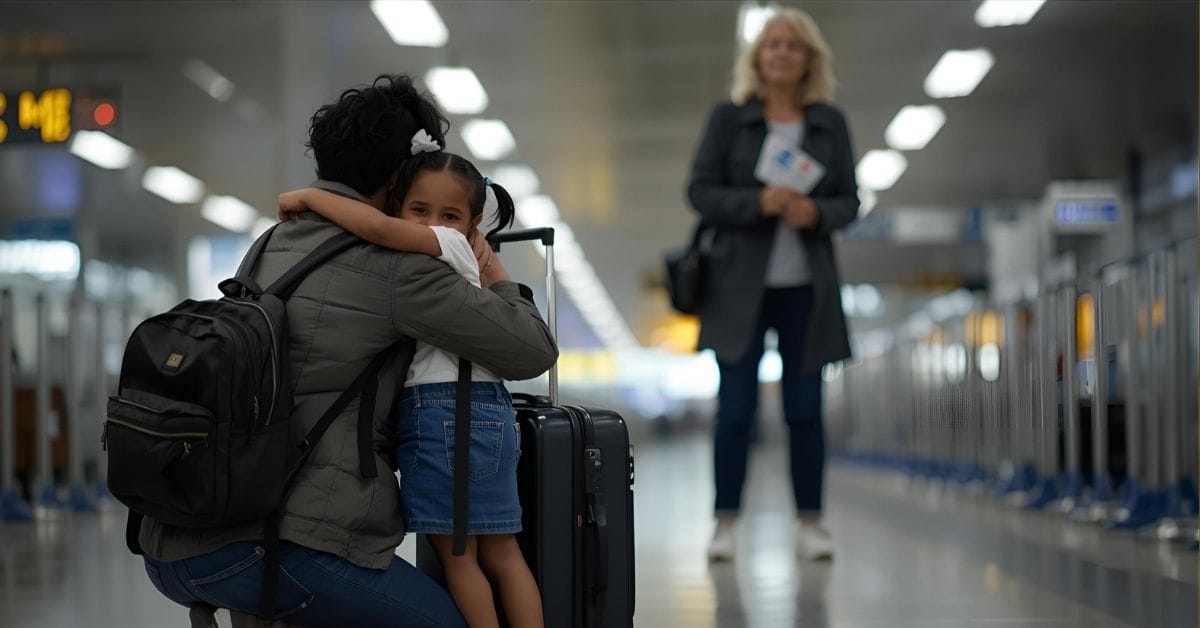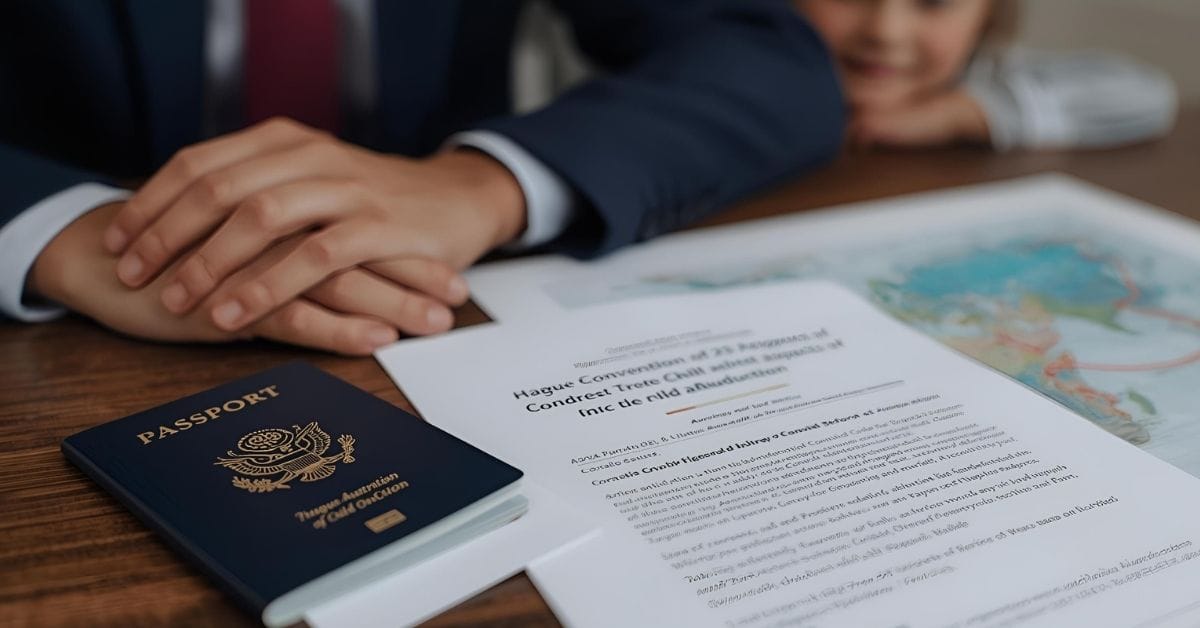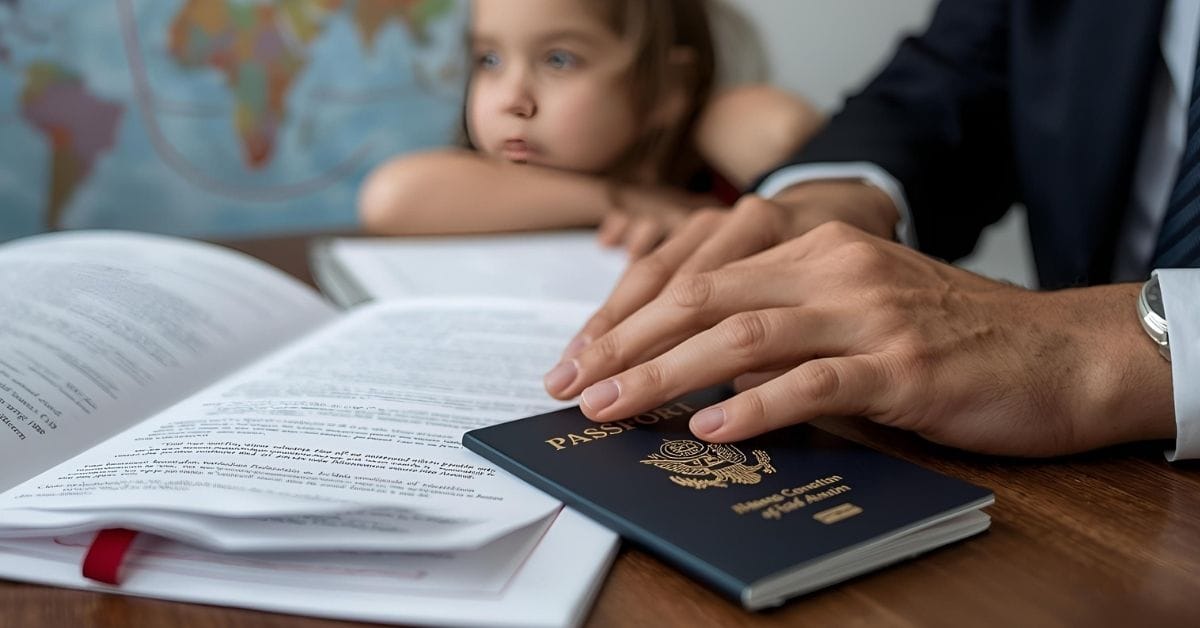Estate planning is about more than wills and inheritance. A binding financial agreement (BFA) can act as a planning [...]
QFLP helps families enforce parenting orders and property settlements when a dispute crosses international borders. An Australian court may recognise and enforce certain overseas orders, and overseas courts may enforce Australian orders, but the path depends on the Family Law Act 1975, the Family Law Regulations 1984 and applicable conventions. We coordinate international family law advice so your orders are enforceable and child arrangements reflect the best interests of the child. For tailored legal advice, contact QFLP.
What Makes an Overseas Order Enforceable in Australia
An overseas parenting order can be registered and enforced in Australia if it comes from a country that meets the legal requirements under Australian Family Law.
The Federal Circuit and Family Court can register certain foreign parenting orders so they apply in Australia. Schedule 1A of the Family Law Regulations 1984 names countries whose final parenting orders may be registered; once registered, they operate as if made by an Australian court. Property orders are different and usually rely on private international law, mirror orders or fresh proceedings. Always confirm jurisdiction, applicable law and whether the original court had proper authority.
Checklist to Register Parenting Orders
- Order is final and from a Schedule 1A country.
- Parties and child have sufficient connection to Australia.
- Certified copy and translations are ready.
- No conflicting Australian order is in force.
Decision guide: If your order is from a listed country, registration is often faster than re-litigating; otherwise consider mirror orders or new Australian proceedings.
Hague Conventions That Matter for Parenting
Two Hague Convention instruments shape cross-border parenting and protection of children for Australians.
The 1980 Hague Convention on the Civil Aspects of International Child Abduction sets a process to return an abducted child to their habitual residence and to secure access rights. Australia participates and the Attorney-General’s Department is the Central Authority. The 1996 Hague Convention covers jurisdiction, applicable law, recognition, enforcement and cooperation for parental responsibility and protective measures; it entered into force in Australia on 1 August 2003.
When They Apply
- Wrongful removal or retention across international borders (1980 Convention).
- Recognition and enforcement of protective measures and parental responsibility (1996 Convention).
- Cooperation between convention countries to expedite enforcement.
Example: A parenting order allocating parental responsibility can be recognised under the 1996 Convention, while a wrongful retention triggers a 1980 return application.
Registering Parenting Orders From Another Country
If the order is from a reciprocating jurisdiction, registration makes it enforceable in Australia like an order made locally.
You or your family lawyer apply to the Australian court with a certified copy, sworn evidence and any required translations. After registration, the order can be enforced by Australian courts and the AFP if necessary. Where safety is a concern, you can seek injunctions and additions such as a Family Law Watchlist order to prevent a child being removed from Australia without consent or a further court order.
Practical Documents
- Certified order and proof of service.
- Evidence of the child’s habitual residence and connection to Australia.
- Any later variations or consent orders.
Decision guide: If facts have changed since the order, consider varying after registration so arrangements remain in the best interests of the child.
Child Support and Maintenance Across Borders
Australian child support can be registered and enforced across international borders with countries that have reciprocating jurisdictions and treaties.
Services Australia maintains arrangements with numerous countries, called reciprocating jurisdictions, to recognise and enforce child support assessments and agreements. If one parent lives overseas, you can request registration and collection in that country, or collection here for payments into Australia. Confirm the law of the other country and any limits on arrears or interest.
Child Support Pointers
- Check if the other country is a reciprocating jurisdiction.
- Provide certified assessments and up-to-date account statements.
- Clarify currency and bank details to avoid delays.
Example: An Australian assessment can be enforced in a reciprocating country, with payments returned to the parent living in Australia.
Enforcing Australian Orders Overseas
To apply an Australian order in another country, use registration routes, mirror orders or local recognition rules.
Many countries will recognise Australian parenting orders under domestic law or the 1996 Convention framework. Your Australian family lawyer works with local counsel from the other country to register or obtain a mirror order so terms match and are enforceable. For non-parenting issues, you may need to commence fresh proceedings, especially for property located overseas where local law governs rights and enforcement.
Route Selection
- 1996 Convention recognition for parenting measures.
- Local registration under foreign statutes or court rules.
- Mirror orders to ensure practical enforcement.
Decision guide: Choose the path that delivers enforceability with the least delay under the law of the other country.
Property Settlement and Assets Outside Australia
Australian courts can deal with an international family law property settlement if there is jurisdiction, but enforcement depends on where assets are located.
Orders about Australian superannuation and property in Australia can be enforced locally. For assets held overseas, the safer course is mirror orders in the country where the asset sits, or negotiated transfers backed by undertakings. If a party will not comply, consider freezing injunctions and evidence preservation orders in the relevant jurisdiction.
Property Planning Steps
- Identify assets located in Australia and outside of Australia.
- Obtain valuations and confirm the applicable law.
- Decide between Australian orders, mirror orders or settlement deeds.
Example: To divide an overseas apartment, obtain a local mirror order so title can be transferred under that country’s registry rules.
When This May Not Be the Right Fit
Sometimes recognition is not available or proportionate for your dispute.
If the order is from a non-listed country with limited cooperation, registration may be unavailable. If costs are high and the issue is narrow, a new agreement or mediation may be more practical. In some cases, safety concerns suggest applying fresh in Australia rather than relying on a foreign order that cannot be enforced.
Consider Alternatives
- Fresh Australian parenting orders focused on the child’s best interests.
- Interim Australian injunctions while seeking overseas recognition.
- A negotiated consent order that both countries can register.
Decision guide: If the path to registration is blocked, redirect to an enforceable Australian order or a mediated solution.
How to Judge Urgency in Cross Border Cases
Act fast where there is a flight risk or a live relocation dispute.
If a child may be removed from Australia without consent, seek a Family Law Watchlist order and urgent parenting orders. If wrongful removal has occurred, a Hague Convention return application should be filed without delay through the Australian Central Authority. Time also matters for registering overseas orders before school terms or holidays.
Prioritise Now If
- Travel bookings or passport applications are imminent.
- There is family violence risk or non-compliance with parenting arrangements.
- A property sale or asset transfer overseas is pending.
Decision guide: If delay could frustrate enforcement or harm a child, file urgently and notify border agencies where appropriate.
Where This Connects in Your International Family Law Matter
Cross-border enforcement sits alongside parenting arrangements, property settlement and child support.
Align your strategy so parenting orders are recognised, child support is collectable, and property orders are executable in each country touched by the dispute. Engage an experienced family law team with international partners to reduce duplicated proceedings and conflicting orders.
Connected Topics
- International relocation and habitual residence evidence.
- Consent orders and mirror orders across borders.
- Spousal maintenance and enforcement routes overseas.
Decision guide: Build one plan that covers jurisdiction, applicable law and practical enforcement in every country involved.
































